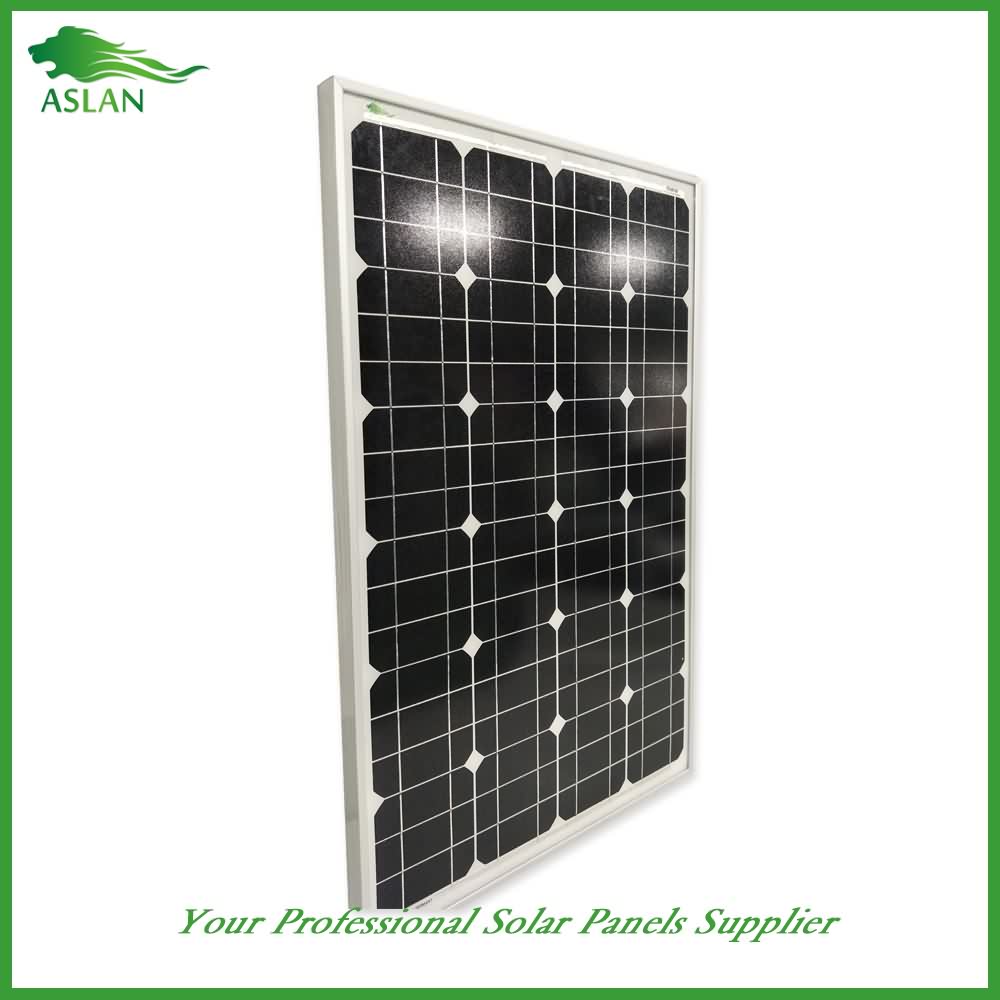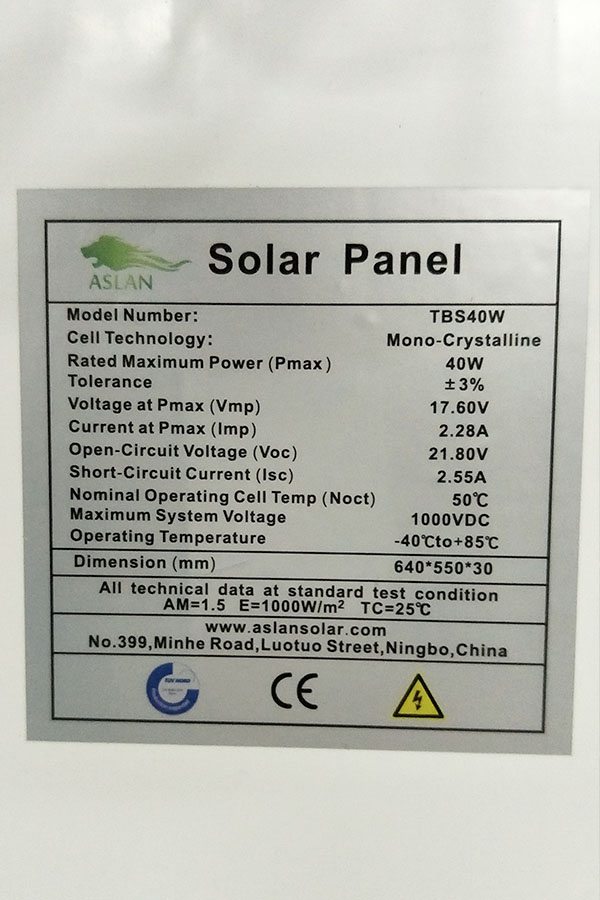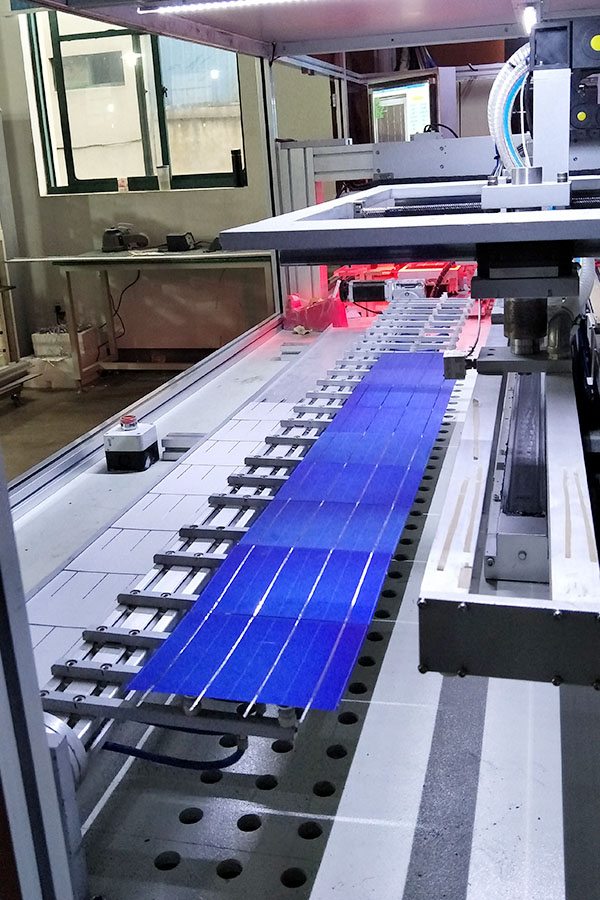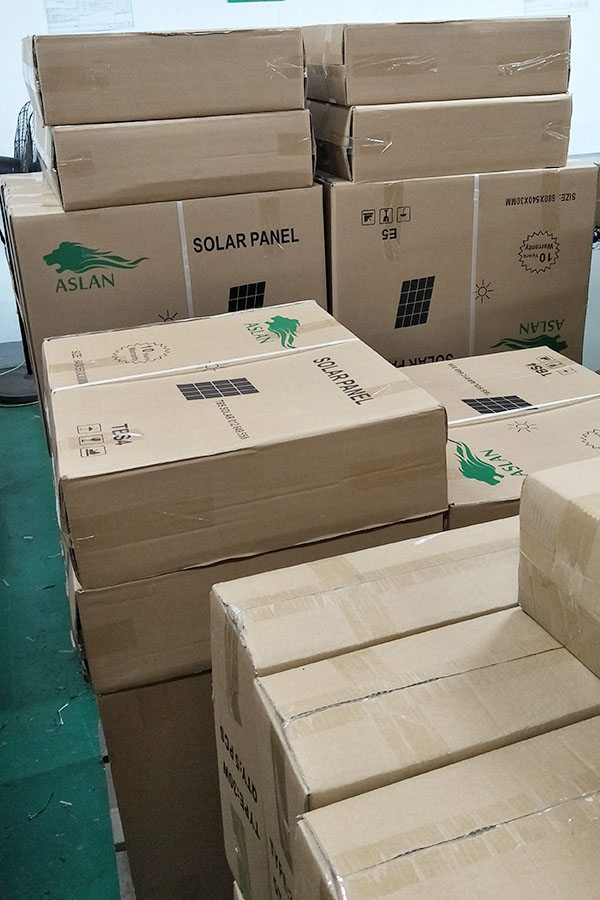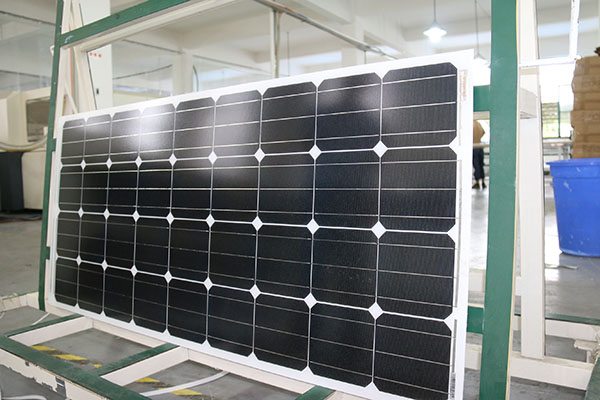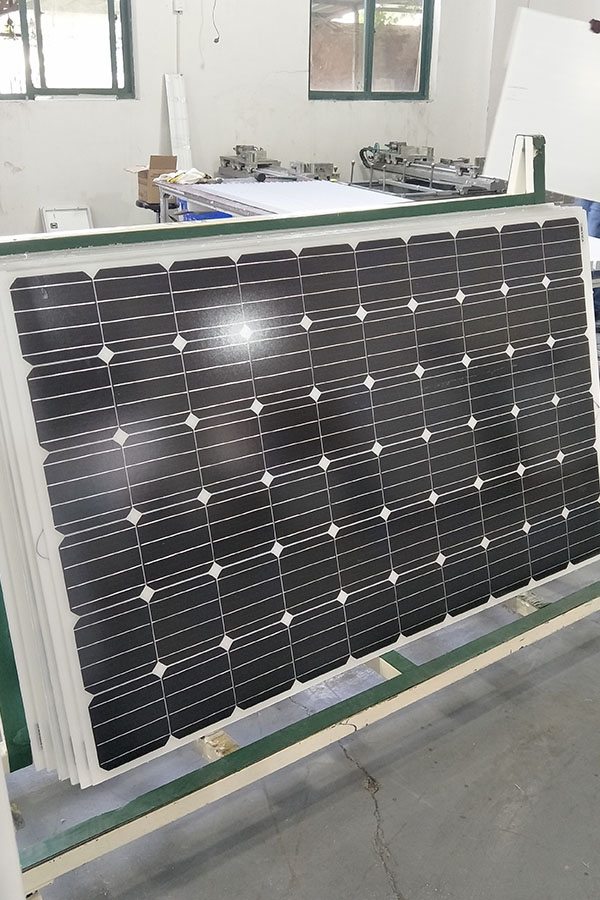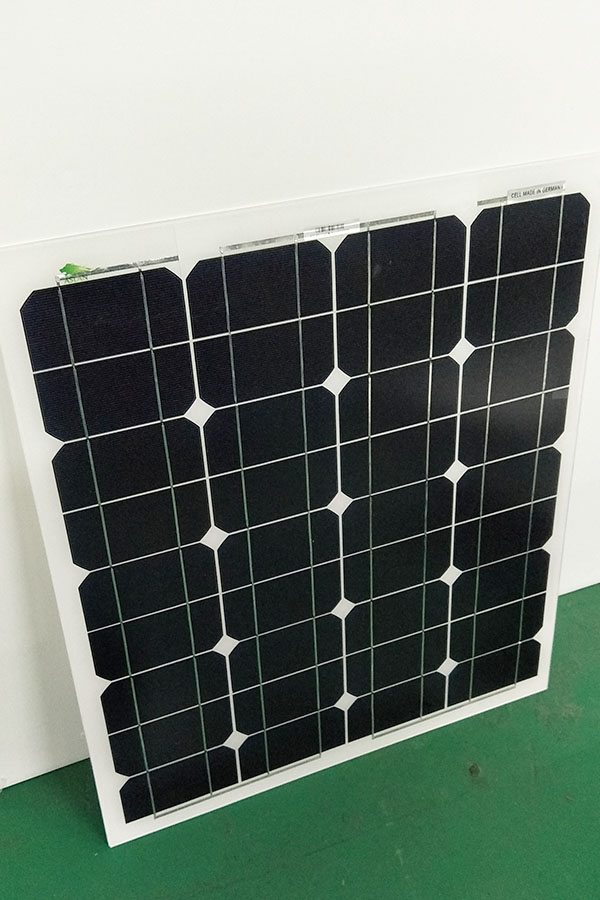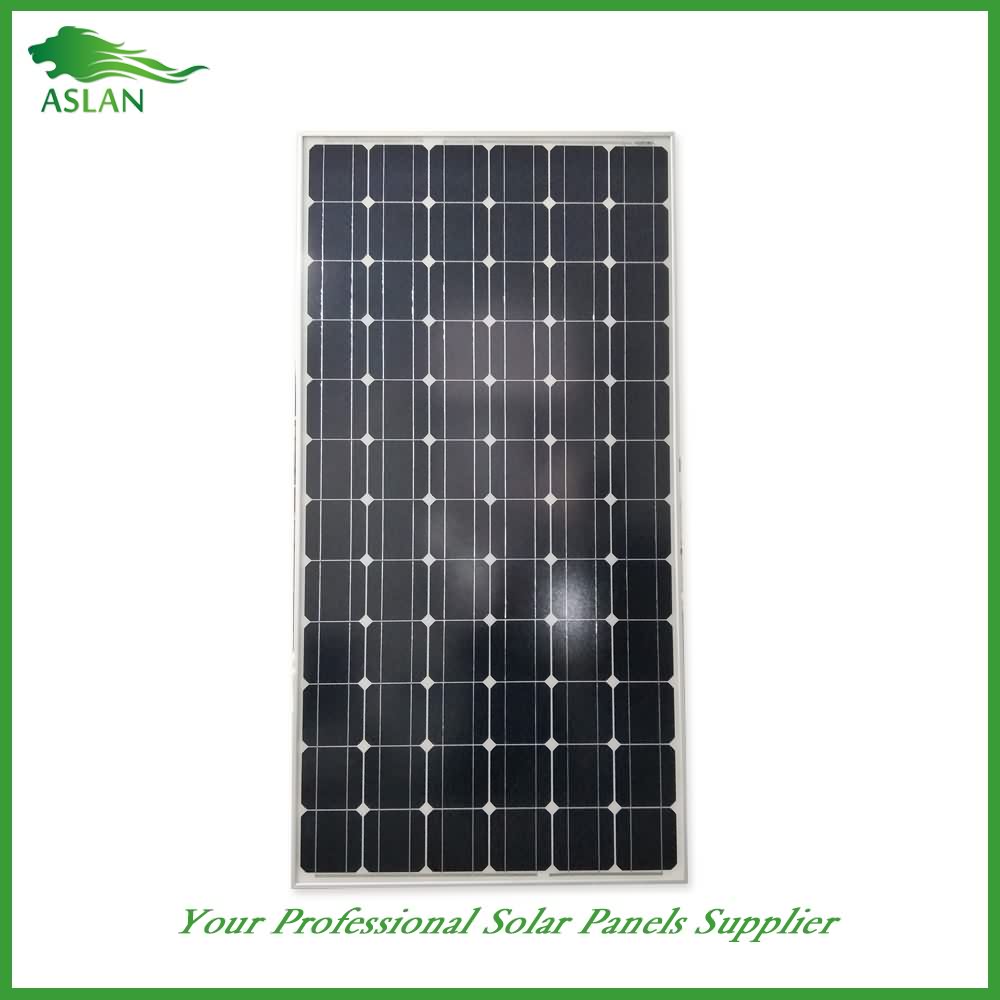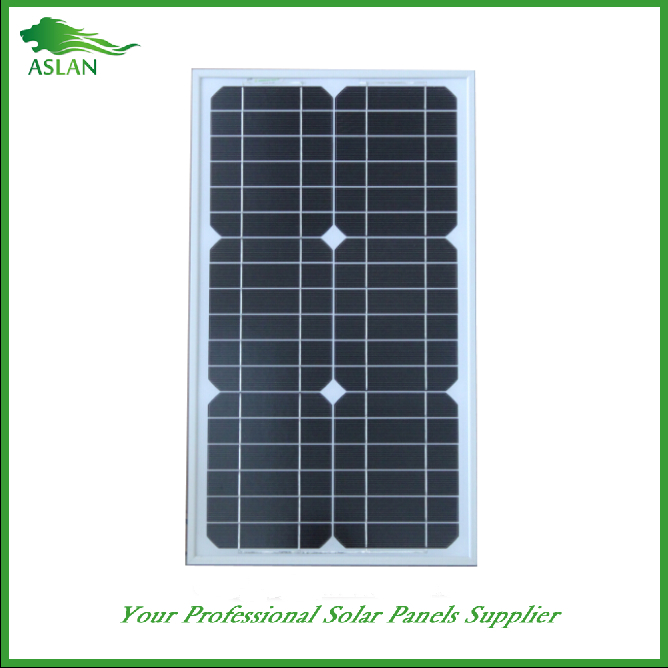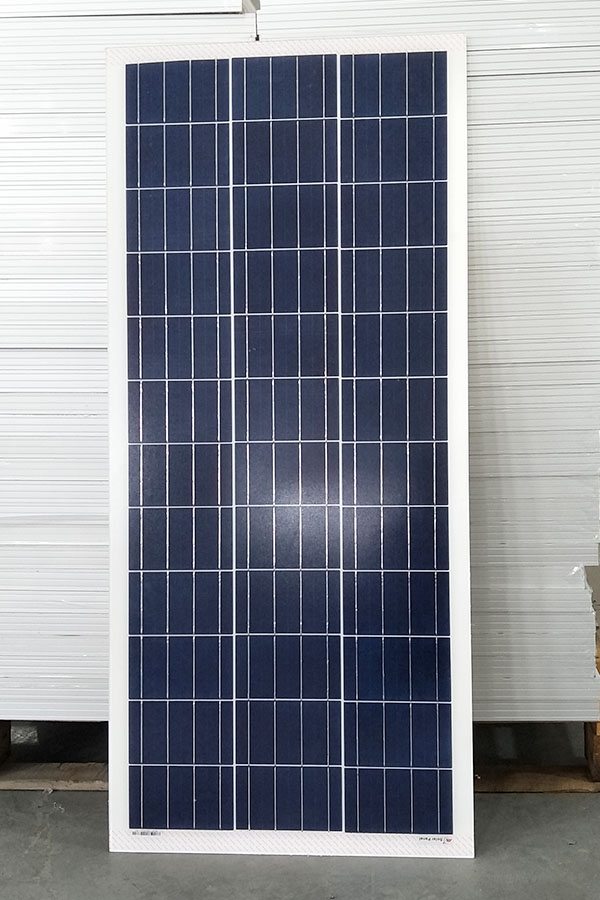factory low price Mono-Crystalline 80W Solar Panel to Mauritania Manufacturers
Short Description:
We depend on sturdy technical force and continually create sophisticated technologies to meet the demand of factory low price Mono-Crystalline 80W Solar Panel to Mauritania Manufacturers, Our final goal is "To try the best, To be the Best". Please feel free to contact with us if you have any requirements.
Mono-Crystalline 80W Solar Panel
Technical parameter
Maximum Power(W) 80W
Optimum Power Voltage(Vmp) 15.90V
Optimum Operating Current(Imp) 5.03A
Open Circuit Voltage(Voc) 18.58V
Short Circuit Current(Isc) 5.59A
Mechanical Characteristics
Cell Type Monocrystalline 125x125mm (5 inch)
No of Cell 36 (4x9pcs)
Dimensions 906x670x35mm
Weight 7.2KGS
Front Glass 3.2mm,High Transmission, Low iron, tempered Glass
Junction box IP65 Rated
Output Cable TUV 1×4.0mm2/UL12AWG,Length: 900mm
Temperature and Coefficients
Operating Temperature(°C): -40°C ~ + 85°C
Maximum System Voltage: 600V(UL)/1000V(IEC) DC
Maximum Rated Current Series: 15A
Temperature Coefficients of Pmax: -0.435%
Temperature Coefficients of Voc: -0.35%
Temperature Coefficients of Isc: 0.043%
Nominal Operating Cell Temperature (NOCT): 47+/-2°C
Materials of solar panel
1).Solar Cell——Mono-crystalline solar cell 125*125mm
2).Front Glass——-3.2mm, high transmission, low iron, tempered glass
3).EVA——-excellent anti-aging EVA
4).TPT——-TPT hot seal made of flame resistance
5).Frame——anodized aluminum profile
6).Junction Box——-IP65 rated, high quality, with diode protection
Superiority: high quality anodized aluminum frame, high efficiency long life, easy installation, strong wind resistance, strong hail resistance.
Features
1. High cell efficiency with quality silicon materials for long term output stability
2. Strictly quality control ensure the stability and reliability, totally 23 QC procedures
3. High transmittance low iron tempered glass with enhanced stiffness and impact resistance
4. Both Polycrystalline and Mono-crystalline
5. Excellent performance in harsh weather
6. Outstanding electrical performance under high temperature and low irradiance
Quality assurance testing
Thermal cycling test
Thermal shock test
Thermal/Freezing and high humidity cycling test
Electrical isolation test
Hail impact test
Mechanical, wind and twist loading test
Salt mist test
Light and water-exposure test
Moist carbon dioxide/sulphur dioxide
The Saturn V (spoken as “Saturn five”) was an American human-rated expendable rocket used by NASA between 1967 and 1973. The three-stage liquid-fueled super heavy-lift launch vehicle was developed to support the Apollo program for human exploration of the Moon, and was later used to launch Skylab, the first American space station. The Saturn V was launched 13 times from the Kennedy Space Center in Florida with no loss of crew or payload. As of 2017, the Saturn V remains the tallest, heaviest, and most powerful (highest total impulse) rocket ever brought to operational status, and holds records for the heaviest payload launched and largest payload capacity to low Earth orbit (LEO) of 140,000 kg (310,000 lb), which included the third stage and unburned propellant needed to send the Apollo Command/Service Module and Lunar Module to the Moon.
The largest production model of the Saturn family of rockets, the Saturn V was designed under the direction of Wernher von Braun and Arthur Rudolph at the Marshall Space Flight Center in Huntsville, Alabama, with Boeing, North American Aviation, Douglas Aircraft Company, and IBM as the lead contractors.
To date, the Saturn V remains the only launch vehicle to launch missions to carry humans beyond low Earth orbit. A total of 15 flight-capable vehicles were built, but only 13 were flown. An additional three vehicles were built for ground testing purposes. A total of 24 astronauts were launched to the Moon, three of them twice, in the four years spanning December 1968 through December 1972.
http://www.lensunsolar.com/lensun-solar-phone-chargers
Lensun uses ETFE integraded lamination technology on the solar charger NOT the cheap fabric, This ETFE laminated solar charger has non-adhesive surface properties. Highly stain-resistant and easily gets cleaned by the rain.
And ETFE integrated Lamination solar panels do not reflect the light. Dimple technology on the surface captures more sunlight and increases 5% solar absorption rate.
Please feel free to let us know if you need any more information, You can contact us via email or call us from Mondays to Fridays.
Contact information:
http://www.lensunsolar.com
Tel: UK +44 2032875806,
US +1 (323) 2845027,
China:+86 15759769602
Whatsapp: +86 15759769602
Skype: lensunsolar
Email: info@lensunsolar.com , lensunsolar@gmail.com
